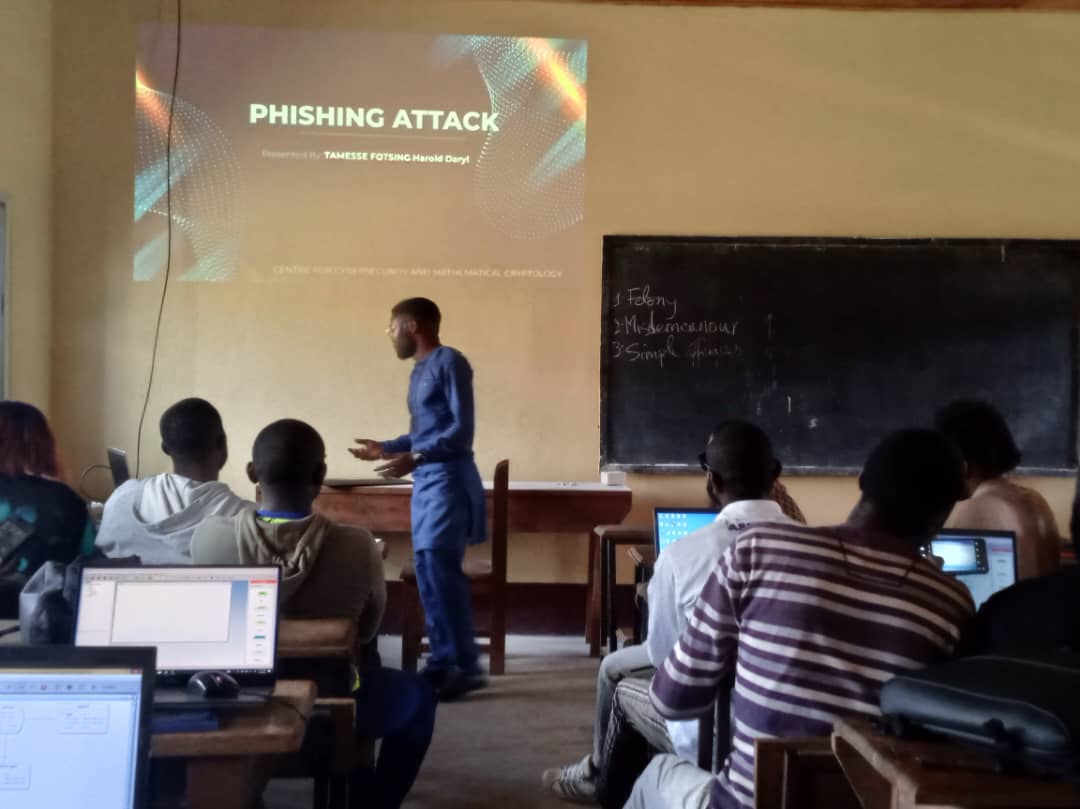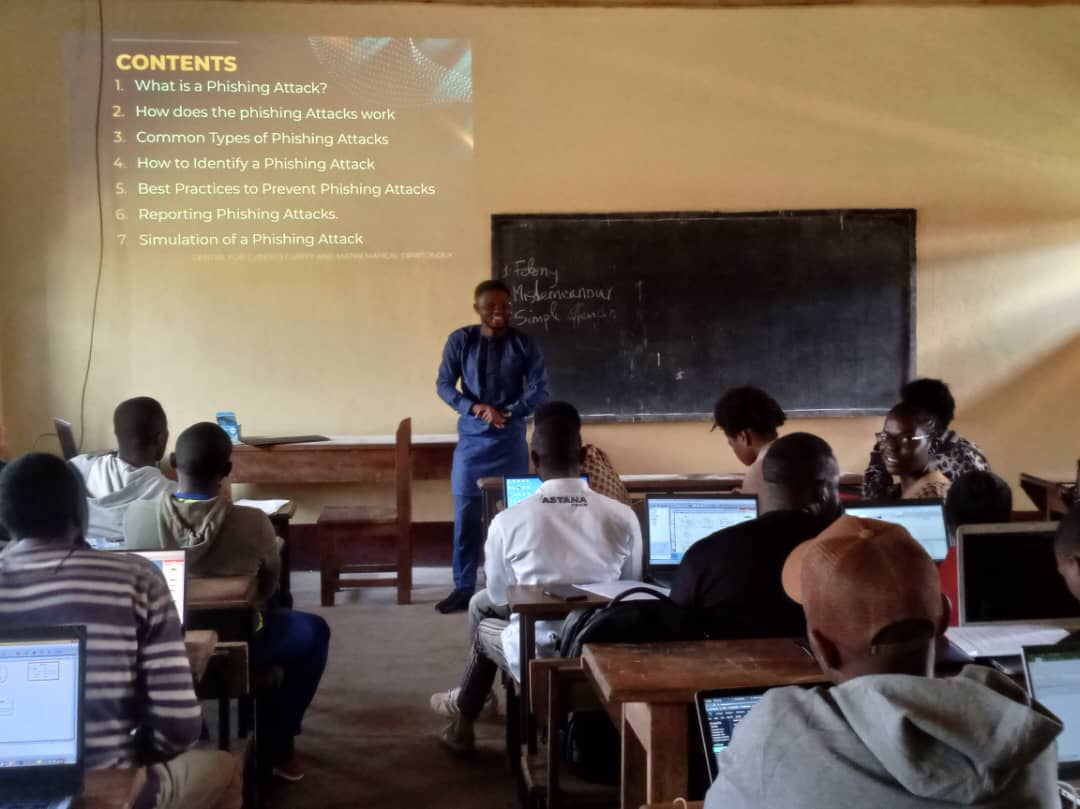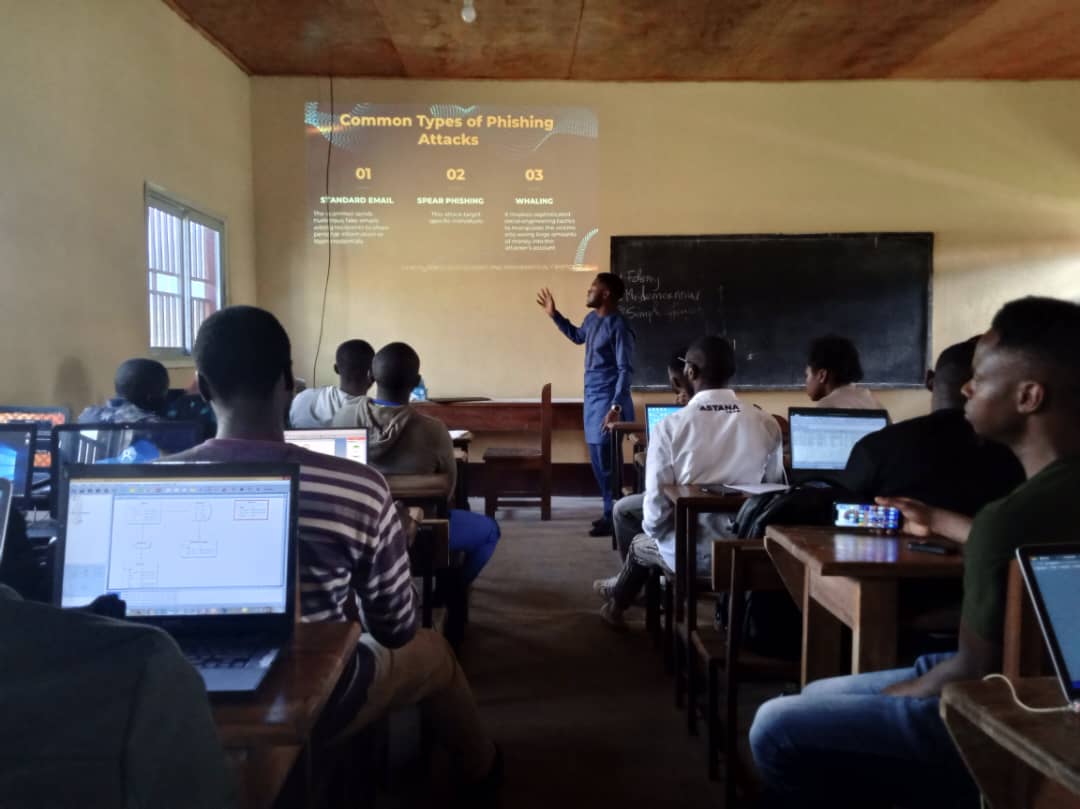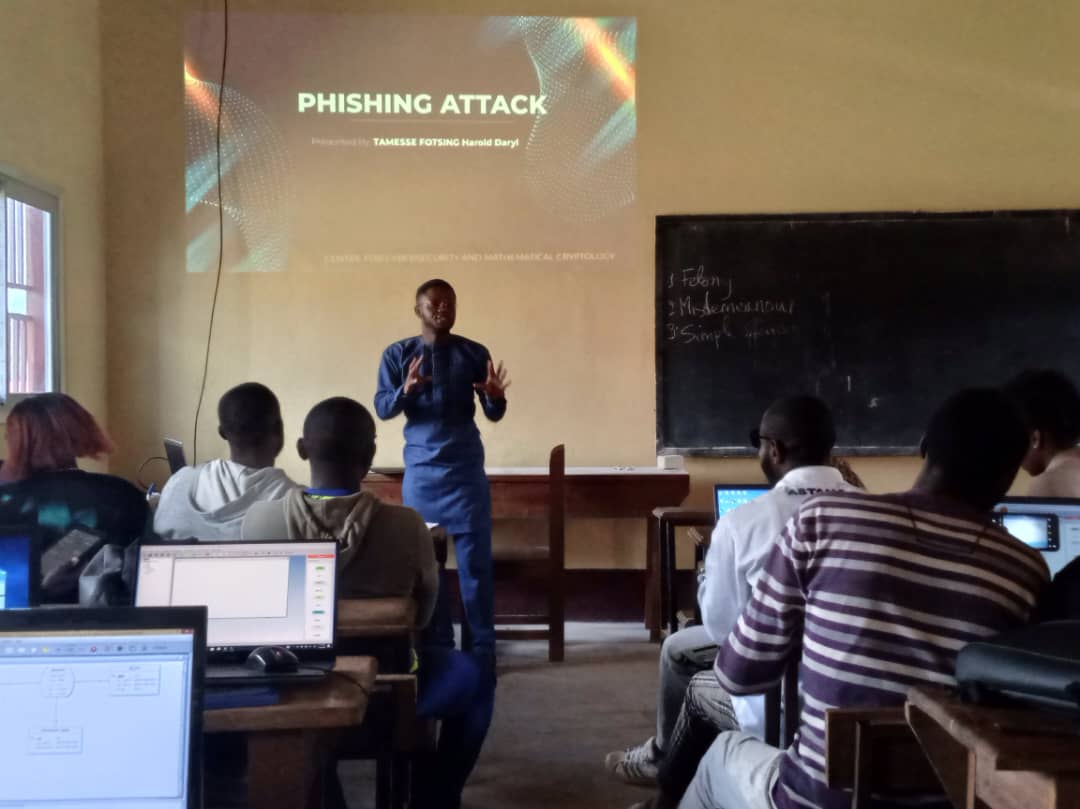weekly students seminars
- 16 Nov, 2023 - 16 Nov, 2023
- 16 Nov, 2023
- Cameroon, Bamenda

Event Description
A student by name TAMESSE FOTSING Harold Daryl, was thrilled to be here today at the weekly students seminar of the Centre for Cybersecurity and Mathematical Cryptology. Today, TAMESSE FOTSING Harold Daryl had the opportunity to speak about "PHISHING ATTACK," and we will like to elaborate on some of the key points he discussed during his presentation.
A phishing attack is a type of cyber attack where an attacker impersonates a legitimate entity or organization to trick individuals into revealing sensitive information, such as passwords, credit card numbers, or personal data. The attacker typically does this by sending deceptive emails, instant messages, or using fraudulent websites that appear to be legitimate.
Here are a few common characteristics of phishing attacks:
👉🏽Spoofed emails or messages: Phishing attacks often involve sending emails or messages that appear to be from a trusted source, such as a bank, social media platform, or online service provider. These messages are designed to deceive recipients into believing they are legitimate.
👉🏽Urgency or fear tactics: Phishing emails often create a sense of urgency or use fear tactics to prompt individuals into taking immediate action. For example, they might claim that an account has been compromised, and immediate action is required to prevent further damage.
👉🏽Request for sensitive information: Phishing attacks typically ask the recipient to provide sensitive information, such as passwords, account numbers, or social security numbers. Legitimate organizations usually do not request such information via email or message.
👉🏽Suspicious links or attachments: Phishing emails may contain links to fraudulent websites that mimic the appearance of legitimate sites. Clicking on these links can lead to the disclosure of sensitive information. Attachments in phishing emails may contain malware or viruses.
To protect yourself against phishing attacks, consider the following preventive measures:
👉🏽Be cautious of unsolicited emails or messages: Be skeptical of any unexpected email or message asking for personal information. Verify the source through a separate and trusted channel before responding or providing any sensitive data.
👉🏽Check the email or message for red flags: Look for spelling or grammatical errors, generic greetings, or unusual sender email addresses. Legitimate organizations usually use professional language and proper grammar.
👉🏽Avoid clicking on suspicious links: Hover your mouse over links to see the actual URL before clicking. If the link looks suspicious or leads to an unfamiliar website, do not click on it.
👉🏽Keep your software up to date: Regularly update your operating system, web browsers, and security software to protect against known vulnerabilities that phishers may exploit.
👉🏽Use strong, unique passwords: Avoid using the same password for multiple accounts, and consider using a password manager to generate and store complex passwords securely.
👉🏽Enable two-factor authentication (2FA): Enable 2FA whenever possible. This adds an extra layer of security by requiring a second form of verification, such as a code sent to your mobile device, in addition to your password.
👉🏽Educate yourself and others: Stay informed about the latest phishing techniques and share this knowledge with friends, family, and colleagues to help them stay protected as well.
If you suspect that you have fallen victim to a phishing attack, it's important to take immediate action. Change your passwords for all relevant accounts, monitor your financial statements for any unauthorized activity, and report the incident to the appropriate authorities or organizations affected, such as your bank or the company being impersonated.


